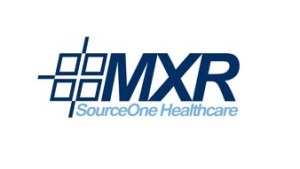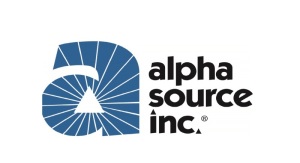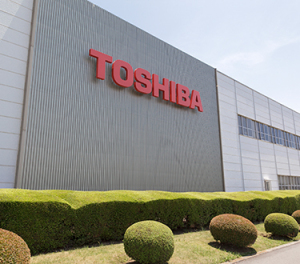
Bayer announced this past summer
its decision to sell its MVS operations
to focus more on its radiology
business
its decision to sell its MVS operations
to focus more on its radiology
business
Top five acquisitions of 2017
January 03, 2018
by John R. Fischer, Senior Reporter
2017 should be remembered as the “Year of the Acquisitions” following the number that took place over the last 12 months, not to mention the size of their importance.
With the future of 2018 on everyone’s mind now, it’s easy to forget the impact that these completed deals will have on the health care industry in the new year and beyond. To avoid this fate, let’s take a look at five of the top acquisitions of 2017:
Bayer to sell Multi-Vendor Service business
In an effort to focus more on its radiology business, Bayer announced its decision this summer to sell its Multi-Vendor Service (MVS) operations to Resilience Capital Partners and North Park Capital Partners (Resilience/North Park).
The MVS business, which provided repairs and maintenance primarily for non-Bayer radiology devices, such as MR coils and ultrasound transducers, formed an extension of the Medrad MR coil manufacturing business for the repair of multi-vendor coils in 1996.
Operations take place at three depot repair centers in Pittsburgh, PA; Tulsa, OK; and Maastricht, the Netherlands, with each maintaining an ISO 13485 certification.
The purchase, according to a Bayer spokesperson who spoke with HCB News, supports long-term sustainability for MVS in the third-party radiology device repair sector. Bayer’s choice to sell to Resilience/North Park was due to its experience in forming stand-alone companies.
Bayer will continue to oversee its service business, providing such support for the devices it produces.
Merry X-ray acquires Consensys Imaging Service
The acquisition of Consensys Imaging Service marked Merry X-ray Corporation’s transition from a mere distributor of X-ray equipment to a one-stop shop for X-ray, MR, ultrasound, CT, mammography and a variety of other imaging modality needs.
“Now, whether you’re talking about the sale of a digital X-ray or the service of an MR, we have one place where we can offer our customers the service systems of basically one company,” Ted Sloan, the president of Merry X-ray, told HCB News.
The purchase, completed in October, provides Merry X-ray with Consensys’ scalable model to continue its expansion as a company and to absorb existing service needs, including ones already outsourced back to OEMs. It also certifies Merry X-ray with ISO9001 and ISO13485 under the International Organization for Standardization (ISO).
Consensys customers also benefit, with access to X-ray equipment distribution, sales of refurbished equipment, certain product lines and the inclusion of services offered by Merry X-ray in their existing contracts.
The deal builds upon another acquisition completed in September of Universal Medical Systems, a supplier of MR and CT imaging and one that holds expertise in robotic CT systems and high-field MR.
Both these purchases should be noted not just for their multiple assets, however, but as part of an emerging trend, consisting of a greater number of acquisitions and mergers taking place within the third-party service industry and one that is likely to continue in 2018.
“When you look at the big three manufacturers, GE, Siemens and Philips, I think it’s pretty clear they haven’t been growing rapidly because there’s been this uncertainly in the market,” Jim Spearman, the CEO and president of Consensys, told HCB News. And I think in the third parties, you’re seeing that continue to trickle down, and now the industry is worried for digital consolidation.”
Alpha Source acquires BC Technical
Acquiring the latest medical equipment is on every provider’s radar year round. But in balancing pricing, budgets and patient needs, it’s also important to preserve what you already have.
That’s what made Alpha Source’s acquisition of BC Technical a great asset in 2017, enhancing Alpha’s ability to cater to the marketing needs of health care organizations seeking to expand the life of their devices, much of which is estimated to be approximately 20 years old.
“By offering a full [range] of imaging modality services, plus parts and training, we can help customers extend the life of their medical equipment,” Rick Lytle, the CEO of Alpha Source and BC Technical, told HCB News. “Further, because of the rapidly consolidating health care marketplace, with systems and hospitals and imaging centers becoming bigger, we’re in a better position, given our nationally-scaled footprint, to service larger customers, including our OEM and asset management partners.”
The acquisition doubles the size of Alpha Source and enables expansion of its geographic scope, with field engineers located in major markets nationwide and services for customers across both companies, primarily in field service, sales, marketing, service parts, distribution and supply chains.
It also expands Alpha’s ultrasound and bone densitometry services to include maintenance, repair and refurbished equipment for CT, MR and molecular imaging modalities.
The deal marks the fifth acquisition for Alpha Source in less than three years and reflects a substantial growth projected for the imaging service provider market, driven by a desire among health care providers for quality and value-based repair and replacement options to better manage costs.
It even got a mention from DOTmed president and founder Phil Jacobus in his weekly blog, The Jacobus Report.
Radiology Partners acquires SDI and Peoria
Radiology Partners, which more than doubled the number of hospitals and health care organizations it serves, expanded its geographic footprint by six states this year.
Serving almost 200 organizations in seven states in December 2016, the hospital-based practice has built up its clientele to nearly 450 in the last 12 months, spread out across 13 states.
“Garnering more scale allows us more resources, opportunities to make bigger investments and opportunities to continue to innovate from a clinical standpoint,” Rich Whitney, the CEO of RP, told HCB News in September following the acquisition of Southwest Diagnostic Imaging, a move which introduced RP to the Arizona market while providing it with a 25 percent increase in scale to serve over 525 radiologists at 400 sites in more than 10 states.
RP built upon these numbers further in November when it acquired Specialists in Medical Imaging (Peoria), expanding its reach into Illinois while adding on new sites in Texas, New Mexico, Michigan and South Carolina.
The acquisitions of these two companies as well as other entities provided not just access to new technology and programs but the ability to scale up on a national level.
Canon acquires Toshiba
Though technically completed in 2016, Canon’s acquisition of Toshiba Medical Systems Corporation was a buzz throughout the industry in 2017 from delays in Toshiba’s name change to EU objections over the deal. It therefore only seems appropriate to mention it in this list.
Following the completion of the December 2016 acquisition, the year of 2017 started out troubling for both companies, with China slapping their agreement with a fine of 300,000 Yuan ($43,000) relating to violations over antitrust regulations against Canon.
China furthered frustration through the length of time it spent assessing the legality of the deal, delaying Toshiba Medical Systems’ name change to Canon Medical Systems to 2018.
Canon also ran into trouble with the EU in the summer, when merger commissioners for the 28-member bloc issued a statement of objection, alleging that Cannon “breached the EU Merger Regulation” by initiating the acquisition before notifying and obtaining approval from the Commission. Though the deal was allowed to continue, Canon stock dropped to a two-month low.
"We need companies to work with us to ensure fast and predictable merger control, to the benefit of both companies and consumers. But we can only do our job well if we can rely on cooperation from the companies concerned – they must obtain our approval before they implement their transactions, and the information they supply us must be correct and complete," stated Commissioner Margrethe Vestager, in charge of competition policy, as reported by HCB News.
The deal, already surrounded in controversy due to the nature of its structure, seems to have stabilized, with Canon discussing its plans for integration and Toshiba Medical Systems set to officially change its name to Canon Medical Systems on January 4, 2018.
With the future of 2018 on everyone’s mind now, it’s easy to forget the impact that these completed deals will have on the health care industry in the new year and beyond. To avoid this fate, let’s take a look at five of the top acquisitions of 2017:
Bayer to sell Multi-Vendor Service business
In an effort to focus more on its radiology business, Bayer announced its decision this summer to sell its Multi-Vendor Service (MVS) operations to Resilience Capital Partners and North Park Capital Partners (Resilience/North Park).
The MVS business, which provided repairs and maintenance primarily for non-Bayer radiology devices, such as MR coils and ultrasound transducers, formed an extension of the Medrad MR coil manufacturing business for the repair of multi-vendor coils in 1996.
Operations take place at three depot repair centers in Pittsburgh, PA; Tulsa, OK; and Maastricht, the Netherlands, with each maintaining an ISO 13485 certification.
The purchase, according to a Bayer spokesperson who spoke with HCB News, supports long-term sustainability for MVS in the third-party radiology device repair sector. Bayer’s choice to sell to Resilience/North Park was due to its experience in forming stand-alone companies.
Bayer will continue to oversee its service business, providing such support for the devices it produces.
Merry X-ray acquires Consensys Imaging Service
The acquisition of Consensys Imaging Service marked Merry X-ray Corporation’s transition from a mere distributor of X-ray equipment to a one-stop shop for X-ray, MR, ultrasound, CT, mammography and a variety of other imaging modality needs.
“Now, whether you’re talking about the sale of a digital X-ray or the service of an MR, we have one place where we can offer our customers the service systems of basically one company,” Ted Sloan, the president of Merry X-ray, told HCB News.
The purchase, completed in October, provides Merry X-ray with Consensys’ scalable model to continue its expansion as a company and to absorb existing service needs, including ones already outsourced back to OEMs. It also certifies Merry X-ray with ISO9001 and ISO13485 under the International Organization for Standardization (ISO).
Consensys customers also benefit, with access to X-ray equipment distribution, sales of refurbished equipment, certain product lines and the inclusion of services offered by Merry X-ray in their existing contracts.
The deal builds upon another acquisition completed in September of Universal Medical Systems, a supplier of MR and CT imaging and one that holds expertise in robotic CT systems and high-field MR.
Both these purchases should be noted not just for their multiple assets, however, but as part of an emerging trend, consisting of a greater number of acquisitions and mergers taking place within the third-party service industry and one that is likely to continue in 2018.
“When you look at the big three manufacturers, GE, Siemens and Philips, I think it’s pretty clear they haven’t been growing rapidly because there’s been this uncertainly in the market,” Jim Spearman, the CEO and president of Consensys, told HCB News. And I think in the third parties, you’re seeing that continue to trickle down, and now the industry is worried for digital consolidation.”
Alpha Source acquires BC Technical
Acquiring the latest medical equipment is on every provider’s radar year round. But in balancing pricing, budgets and patient needs, it’s also important to preserve what you already have.
That’s what made Alpha Source’s acquisition of BC Technical a great asset in 2017, enhancing Alpha’s ability to cater to the marketing needs of health care organizations seeking to expand the life of their devices, much of which is estimated to be approximately 20 years old.
Alpha Source's acquisition of BC Technical
allows it to expand the lives of provider's
medical equipment, much of which is
approximately 20-years old
allows it to expand the lives of provider's
medical equipment, much of which is
approximately 20-years old
“By offering a full [range] of imaging modality services, plus parts and training, we can help customers extend the life of their medical equipment,” Rick Lytle, the CEO of Alpha Source and BC Technical, told HCB News. “Further, because of the rapidly consolidating health care marketplace, with systems and hospitals and imaging centers becoming bigger, we’re in a better position, given our nationally-scaled footprint, to service larger customers, including our OEM and asset management partners.”
The acquisition doubles the size of Alpha Source and enables expansion of its geographic scope, with field engineers located in major markets nationwide and services for customers across both companies, primarily in field service, sales, marketing, service parts, distribution and supply chains.
It also expands Alpha’s ultrasound and bone densitometry services to include maintenance, repair and refurbished equipment for CT, MR and molecular imaging modalities.
The deal marks the fifth acquisition for Alpha Source in less than three years and reflects a substantial growth projected for the imaging service provider market, driven by a desire among health care providers for quality and value-based repair and replacement options to better manage costs.
It even got a mention from DOTmed president and founder Phil Jacobus in his weekly blog, The Jacobus Report.
Radiology Partners acquires SDI and Peoria
Radiology Partners, which more than doubled the number of hospitals and health care organizations it serves, expanded its geographic footprint by six states this year.
Serving almost 200 organizations in seven states in December 2016, the hospital-based practice has built up its clientele to nearly 450 in the last 12 months, spread out across 13 states.
“Garnering more scale allows us more resources, opportunities to make bigger investments and opportunities to continue to innovate from a clinical standpoint,” Rich Whitney, the CEO of RP, told HCB News in September following the acquisition of Southwest Diagnostic Imaging, a move which introduced RP to the Arizona market while providing it with a 25 percent increase in scale to serve over 525 radiologists at 400 sites in more than 10 states.
RP built upon these numbers further in November when it acquired Specialists in Medical Imaging (Peoria), expanding its reach into Illinois while adding on new sites in Texas, New Mexico, Michigan and South Carolina.
The acquisitions of these two companies as well as other entities provided not just access to new technology and programs but the ability to scale up on a national level.
Canon acquires Toshiba
Though technically completed in 2016, Canon’s acquisition of Toshiba Medical Systems Corporation was a buzz throughout the industry in 2017 from delays in Toshiba’s name change to EU objections over the deal. It therefore only seems appropriate to mention it in this list.
Following the completion of the December 2016 acquisition, the year of 2017 started out troubling for both companies, with China slapping their agreement with a fine of 300,000 Yuan ($43,000) relating to violations over antitrust regulations against Canon.
China furthered frustration through the length of time it spent assessing the legality of the deal, delaying Toshiba Medical Systems’ name change to Canon Medical Systems to 2018.
Canon also ran into trouble with the EU in the summer, when merger commissioners for the 28-member bloc issued a statement of objection, alleging that Cannon “breached the EU Merger Regulation” by initiating the acquisition before notifying and obtaining approval from the Commission. Though the deal was allowed to continue, Canon stock dropped to a two-month low.
"We need companies to work with us to ensure fast and predictable merger control, to the benefit of both companies and consumers. But we can only do our job well if we can rely on cooperation from the companies concerned – they must obtain our approval before they implement their transactions, and the information they supply us must be correct and complete," stated Commissioner Margrethe Vestager, in charge of competition policy, as reported by HCB News.
The deal, already surrounded in controversy due to the nature of its structure, seems to have stabilized, with Canon discussing its plans for integration and Toshiba Medical Systems set to officially change its name to Canon Medical Systems on January 4, 2018.



